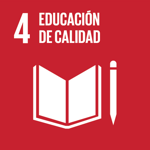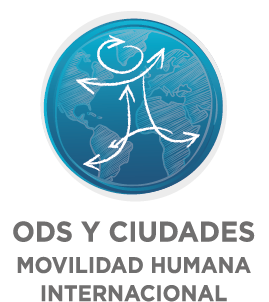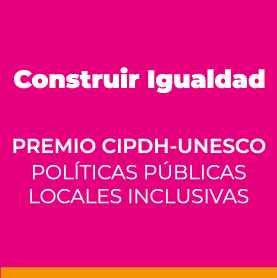
- Region
- Latin America and the Caribbean
- Range of Demographic Size
- 20,000 to 49,999 inhabitants (small)

4.1 By 2030, ensure that all girls and boys complete free, equitable and quality primary and secondary education which must be free, equitable and of quality and leading to relevant and effective learning outcomes.
4.2 By 2030, ensure that all girls and boys have access to quality early childhood development, care and pre-primary education so that they are ready for primary education.
4.3 By 2030, ensure equal access for all women and men to affordable and quality technical, vocational and tertiary education, including university.
4.4 By 2030, substantially increase the number of youth and adults who have relevant skills, including technical and professional skills, to access employment, decent jobs and entrepreneurship.
4.5 By 2030, eliminate gender disparities in education and ensure equal access to all levels of education and vocational training for the vulnerable, including persons with disabilities, indigenous peoples and children in vulnerable situations.
4.6 By 2030, ensure that all youth and at least a substantial proportion of adults, both men and women, achieve literacy and numeracy.
4.7 By 2030, ensure that all learners acquire the knowledge and skills needed to promote sustainable development, including, among others, through education for sustainable development and sustainable lifestyles, human rights, gender equality, promotion of a culture of peace and non-violence, global citizenship and appreciation of cultural diversity and of culture’s contribution to sustainable development, among other means.
4.a Build and upgrade education facilities that are child, disability and gender sensitive and provide safe, non-violent, inclusive and effective learning environments for all.
4.b By 2020, substantially expand globally the number of scholarships available to developing countries, in particular least developed countries, small island developing States and African countries, for enrolment in higher education, including vocational training and information and communications technology, technical, engineering and scientific programmes, in developed countries and other developing countries.
4.c By 2030, substantially increase the supply of qualified teachers, including through international cooperation for teacher training in developing countries, especially least developed countries and small island developing States.
• Inter-American Convention on the Elimination of all Forms of Discrimination Against Persons with Disabilities
Convention on the Rights of Persons with Disabilities (CRPD).
Convention on the Rights of the Child (CRC).
Universal Declaration of Human Rights (UDHR).
Summary
AppDi is a software of augmented communication, educational and playful, developed by the Municipal Agency of Science and Technology of the city of General Alvear, Mendoza Province, Argentina.
The software facilitates learning for persons with multiple disabilities through the use of a conventional mouse or a virtual mouse connected to a webcam, which captures face movements and different facial gestures.
AppDi uses pictograms, is completely free to download and use, and is open code. It can be installed on desktop computers, notebooks, and tablets, and there is no limit on usage time or on the number of connected devices.
Implementation Date:
Start: 06 / 20 / 2020
End: End: Currently in force
- Email: coopinternacional@alvearmendoza.gob.ar
- Web: https://alvearmendoza.gob.ar/
- Telephone: +54 9 2625 448585
- Social Network:
Instrumentos

4.1 By 2030, ensure that all girls and boys complete free, equitable and quality primary and secondary education which must be free, equitable and of quality and leading to relevant and effective learning outcomes.
4.2 By 2030, ensure that all girls and boys have access to quality early childhood development, care and pre-primary education so that they are ready for primary education.
4.3 By 2030, ensure equal access for all women and men to affordable and quality technical, vocational and tertiary education, including university.
4.4 By 2030, substantially increase the number of youth and adults who have relevant skills, including technical and professional skills, to access employment, decent jobs and entrepreneurship.
4.5 By 2030, eliminate gender disparities in education and ensure equal access to all levels of education and vocational training for the vulnerable, including persons with disabilities, indigenous peoples and children in vulnerable situations.
4.6 By 2030, ensure that all youth and at least a substantial proportion of adults, both men and women, achieve literacy and numeracy.
4.7 By 2030, ensure that all learners acquire the knowledge and skills needed to promote sustainable development, including, among others, through education for sustainable development and sustainable lifestyles, human rights, gender equality, promotion of a culture of peace and non-violence, global citizenship and appreciation of cultural diversity and of culture’s contribution to sustainable development, among other means.
4.a Build and upgrade education facilities that are child, disability and gender sensitive and provide safe, non-violent, inclusive and effective learning environments for all.
4.b By 2020, substantially expand globally the number of scholarships available to developing countries, in particular least developed countries, small island developing States and African countries, for enrolment in higher education, including vocational training and information and communications technology, technical, engineering and scientific programmes, in developed countries and other developing countries.
4.c By 2030, substantially increase the supply of qualified teachers, including through international cooperation for teacher training in developing countries, especially least developed countries and small island developing States.
• Inter-American Convention on the Elimination of all Forms of Discrimination Against Persons with Disabilities
Convention on the Rights of Persons with Disabilities (CRPD).
Convention on the Rights of the Child (CRC).
Universal Declaration of Human Rights (UDHR).
Location
- Region
- Latin America and the Caribbean
- Range of Demographic Size
- 20,000 to 49,999 inhabitants (small)
Contact details
- Email: coopinternacional@alvearmendoza.gob.ar
- Web: https://alvearmendoza.gob.ar/
- Telephone: +54 9 2625 448585
- Social network:



